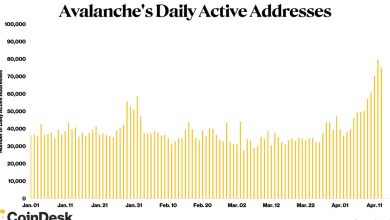XRP Lawyer Warns That Other Crypto Laws Unlikely To Pass If Stablecoin Bill Fails

If the Stablecoin bill GENIUS Act does not pass the U.S. Senate, there may be no major crypto legislation before 2029, according to XRP lawyer John E. Deaton. The lawyer, known for his involvement in the XRP legal case, said on social media that Senate inaction could delay the regulatory clarity needed for the digital asset space.
Deaton stated that the bill, which aims to regulate stablecoins, is non-controversial and serves national interests. However, he expressed concerns that if lawmakers cannot pass this bill, other more complex crypto bills such as market structure legislation, the Lummis-Gillibrand bill, or tax reforms are unlikely to succeed anytime soon.
GENIUS Act Focuses on Stablecoin Regulation
The GENIUS Act is being led by Senator Bill Hagerty and seeks to create a legal framework for issuing stablecoins in the United States. The bill aims to ensure issuers hold high-quality reserves to protect users and promote transparency.
During an interview on CNBC’s “Squawk Box,” Senator Hagerty said, “This Stablecoin bill will bring regulatory clarity and support dollar-backed innovation in the United States.” He explained that the lack of clear rules has pushed many crypto-related projects offshore. The bill intends to reverse that trend by creating a clear regulatory path for stablecoin issuers.
He added that the use of SEC enforcement actions to regulate digital assets has caused confusion in the market. By establishing a formal structure, the bill may help both consumers and businesses operate with better legal understanding. However, despite the worries, Senator Kirsten Gillibrand has predicted the Stablecoin regulation may get passed this week.
Industry Support Grows for GENIUS Act
Several figures in the digital asset space have voiced strong support for the Stablecoin bill GENIUS Act despite allegations of fraud and corruption against US President Donald Trump. Faryar Shirzad, Chief Policy Officer at Coinbase, stated that passing stablecoin legislation is a “national priority.” He emphasized that the U.S. must lead in blockchain-based finance and ensure that stablecoins tied to the U.S. dollar remain dominant.
“Stablecoins can put pressure on old financial systems, but competition is necessary,” Shirzad posted on X. He compared the current moment to the introduction of money market funds in the 1970s and 1980s, saying the banking sector can adapt, as it did then.
Shirzad also mentioned that the GENIUS Act would strengthen the dollar’s role globally and keep the U.S. at the center of international finance. He stressed that the bill goes beyond technology and also supports fiscal strength and national strategy.
Challenges Remain Despite Bipartisan Support
Though the Stablecoin bill has backing from both major political parties, obstacles still exist. Senator Hagerty noted that opposition often comes from lawmakers who favor centralized financial control. Critics, including Senator Elizabeth Warren, have urged caution and questioned whether the bill would increase financial risks or reduce regulatory authority.
XRP lawyer John Deaton said the bill does not allow stablecoin holders to receive yield, which he sees as a shortcoming. However, he acknowledged that any yield-bearing version would likely face resistance from banks due to competition with deposits. “The Bank Lobby is real,” he wrote.
The Senate is expected to vote on the bill soon. If the legislation fails, it may reduce the momentum for other crypto-related efforts. According to XRP lawyer John Deaton, without stablecoin regulation in place, broader reforms such as BitBonds or crypto tax laws may not progress until the next administration.
Disclaimer: The presented content may include the personal opinion of the author and is subject to market condition. Do your market research before investing in cryptocurrencies. The author or the publication does not hold any responsibility for your personal financial loss.





✓ Share: